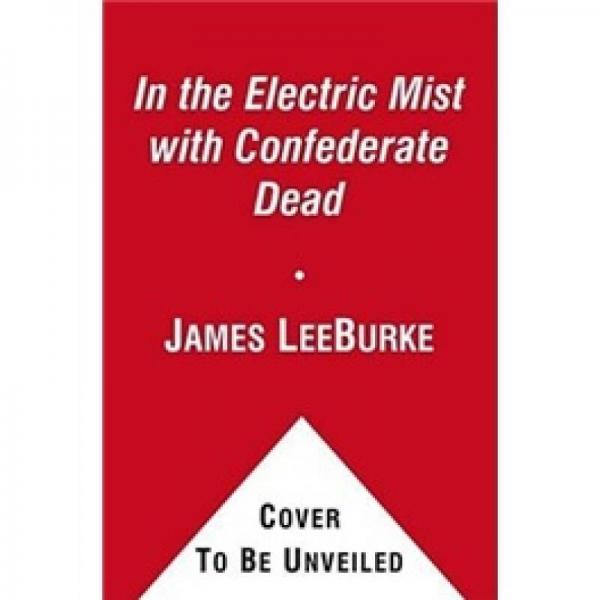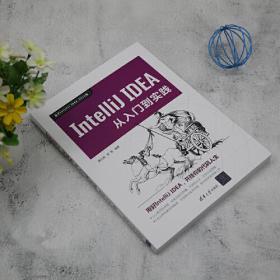In the Electric Mist with the Confederate Dead (Dave Robicheaux Series #6)
出版时间:
2011-10
ISBN:
9781439167601
定价:
84.60
装帧:
平装
-
Haunted by the reemergence of a forty-year-old unsolved murder, detective Dave Robicheaux must also contend with a spate of serial killings of prostitutes and local dissension about the movie company that is shooting in town.
Edgar Award-winner James Lee Burke returns with another riveting Dave Robicheaux novel. Robicheaux has his hands full in New Iberia, Louisiana, what with a film crew shooting a Civil War movie, the return of a local mobster, and the brutal murder of a young woman. With the help of a supposedly psychic actor, Robicheaux tracks a twisted killer. Author signings. More by this Author
Feast Day of Fools (Hackberry Holland Series #3)
A Morning for Flamingos (Dave Robicheaux Series #4)
Black Cherry Blues (Dave Robicheaux Series #3)
The Glass Rainbow (Dave Robicheaux Series #18)
The Neon Rain (Dave Robicheaux Series #1)
James Lee Burke
James Lee Burke was struggling through some lean times as a novelist -- he had published only one book in 15 years -- when a friend and fellow writer suggested he take a stab at crime fiction. The result was The Neon Rain, the first book in his successful Dave Robicheaux books. With a complex moral protagonist and a lush writing style, the series evokes the heady environment of the Louisiana bayou country.
Biography
In November 1999, The Atlantic Monthly -- under the headline, "Soft Boiled: Detectives Aren't What They Used to Be" -- noted an odd turn of events in the crime fiction genre: the strong-and-silent hero was on the wane, replaced instead by a bunch of chatty Cathys. "The 1990s detective can't shut up about anything. It's hard to go even a few pages without being assaulted by a confession of inner feelings." As an example, it offered James Lee Burke's Louisiana detective Dave Robicheaux, who "was in Vietnam 'in the early days of the war,' and this has left him with a sizable reservoir of musings about personal anger, which he taps frequently." But put the aromatherapy away. Robicheaux -- Burke's best-known character and the launch of his financial success as a writer -- is no sensitive New Age guy. He's a police detective who holds his own on the mean streets of New Orleans, who faces the perils of alcoholism every day, and who supplements his work policing the Louisiana parish of New Iberia with running his bait shop on the bayou. Ropy with muscle, he can take -- and, if necessary -- throw a punch with the best of them. Robicheaux is one of the stars of a series that started with The Neon Rain and continued with such titles as Heaven's Prisoners (turned into a 1996 movie with Alec Baldwin and Kelly Lynch), In the Electric Mist with the Confederate Dead and A Stained White Radiance. The other star is the Louisiana swamp country itself, which shimmers to life at the touch of Burke's pen. The smell of brackish water all but wafts off the page. And in Robicheaux, Burke has created a complicated and often conflicted protagonist driven by a fierce moral code. "There is a pronounced streak of poetry in Mr. Burke's prose," The New York Times wrote in 1988. "He has the knack of combining action with reflection; he has pity for the human condition, and even his villains can have some sympathetic and redeeming qualities." Like Robicheaux, Burke himself is a recovering alcoholic. He contributes his teenage drinking to his poor academic standing in high school, and it dogged him throughout much of his career as a writer. Even when he was sober for five years, he has said he still suffered from the same problems as an alcoholic and didn't truly find sanctuary until he joined a 12-step group. His early days as a writer, in the 1960s, were marked by critical success that he thought meant he was on his way. But after his third novel met with so-so reviews, he only published one book for the next 15 years, supporting his family with an assortment of jobs -- teaching, social work, pipefitting. One novel, The Lost-Get Back Boogie, went unpublished for nearly a decade and was rejected roughly 100 times before finally being picked up by Louisiana State University Press. (It was nominated for a Pulitzer Prize.) Burke credits LSU Press for resurrecting his career. Three years later, when the third Robicheaux novel, Black Cherry Blues, was published, Burke was beginning to reach a wider audience. After the ninth, he launched a new crime series, this one featuring Texas Ranger-turned-lawyer Billy Bob Holland. Despite the shift from the swamps of Louisiana to the dusty streets of Deaf Smith, Texas, much is the same in Burke's new franchise. "The themes that stalk Dave Robicheaux through the swamps in James Lee Burke's Louisiana mysteries -- the arrogance of wealth, the corruption of power and the price a man must pay for the sins of his past -- trail Burke's new series hero, a country lawyer named Billy Bob Holland, out to Texas hill country," The New York Times wrote in a 1999 review of the second book in the series, Heartwood. He now has a readership for both Robicheaux and Holland. But he has been careful not to take it for granted. In 1996, even after he had three straight books on The New York Times bestsellers list and was building a second home in New Iberia -- to match his house in Missoula -- Burke was vigilant about not letting the mantle of success rest too comfortably on his shoulders. "By the time I was 35, I had three books published. I thought I was home free," he told People. "But that was vanity. I went a dozen years without selling a book. I couldn't sell ice water in hell."
Good To Know
When Burke is writing, he's typing blind. "I don't think up the stories," he told Publishers Weekly in 1992. "I'm convinced they're already written in the unconscious. My work is simply a day-to-day discovery. I never see more than two scenes around the corner and I don't know a book's ending until the last pages." His college English papers earned him a string of D-minuses until he talked to his professor about what was wrong. "She said, 'Your spelling is an assault upon the eyeballs. Your penmanship makes me wish the Phoenicians had not developed the alphabet. But I couldn't give you an F because you have so much heart,'" he said in a 1996 interview with People. "Every Saturday I went with her and rewrote the essay for the week. I got a B and made the dean's list. (She) changed my life." The 1993 publication of Two for Texas marked Burke's return to bookshelves after 11 years. Unable to sell a book after Lay Down My Sword and Shield, Burke finally broke the bad luck streak with his historical novel about the Texas Revolution of 1835. Kris Kristofferson starred in the 1998 TV movie adaptation, which aired on TNT.
-
内容简介:
Haunted by the reemergence of a forty-year-old unsolved murder, detective Dave Robicheaux must also contend with a spate of serial killings of prostitutes and local dissension about the movie company that is shooting in town.
Edgar Award-winner James Lee Burke returns with another riveting Dave Robicheaux novel. Robicheaux has his hands full in New Iberia, Louisiana, what with a film crew shooting a Civil War movie, the return of a local mobster, and the brutal murder of a young woman. With the help of a supposedly psychic actor, Robicheaux tracks a twisted killer. Author signings.
-
作者简介:
More by this Author
Feast Day of Fools (Hackberry Holland Series #3)
A Morning for Flamingos (Dave Robicheaux Series #4)
Black Cherry Blues (Dave Robicheaux Series #3)
The Glass Rainbow (Dave Robicheaux Series #18)
The Neon Rain (Dave Robicheaux Series #1)
James Lee Burke
James Lee Burke was struggling through some lean times as a novelist -- he had published only one book in 15 years -- when a friend and fellow writer suggested he take a stab at crime fiction. The result was The Neon Rain, the first book in his successful Dave Robicheaux books. With a complex moral protagonist and a lush writing style, the series evokes the heady environment of the Louisiana bayou country.
Biography
In November 1999, The Atlantic Monthly -- under the headline, "Soft Boiled: Detectives Aren't What They Used to Be" -- noted an odd turn of events in the crime fiction genre: the strong-and-silent hero was on the wane, replaced instead by a bunch of chatty Cathys. "The 1990s detective can't shut up about anything. It's hard to go even a few pages without being assaulted by a confession of inner feelings." As an example, it offered James Lee Burke's Louisiana detective Dave Robicheaux, who "was in Vietnam 'in the early days of the war,' and this has left him with a sizable reservoir of musings about personal anger, which he taps frequently." But put the aromatherapy away. Robicheaux -- Burke's best-known character and the launch of his financial success as a writer -- is no sensitive New Age guy. He's a police detective who holds his own on the mean streets of New Orleans, who faces the perils of alcoholism every day, and who supplements his work policing the Louisiana parish of New Iberia with running his bait shop on the bayou. Ropy with muscle, he can take -- and, if necessary -- throw a punch with the best of them. Robicheaux is one of the stars of a series that started with The Neon Rain and continued with such titles as Heaven's Prisoners (turned into a 1996 movie with Alec Baldwin and Kelly Lynch), In the Electric Mist with the Confederate Dead and A Stained White Radiance. The other star is the Louisiana swamp country itself, which shimmers to life at the touch of Burke's pen. The smell of brackish water all but wafts off the page. And in Robicheaux, Burke has created a complicated and often conflicted protagonist driven by a fierce moral code. "There is a pronounced streak of poetry in Mr. Burke's prose," The New York Times wrote in 1988. "He has the knack of combining action with reflection; he has pity for the human condition, and even his villains can have some sympathetic and redeeming qualities." Like Robicheaux, Burke himself is a recovering alcoholic. He contributes his teenage drinking to his poor academic standing in high school, and it dogged him throughout much of his career as a writer. Even when he was sober for five years, he has said he still suffered from the same problems as an alcoholic and didn't truly find sanctuary until he joined a 12-step group. His early days as a writer, in the 1960s, were marked by critical success that he thought meant he was on his way. But after his third novel met with so-so reviews, he only published one book for the next 15 years, supporting his family with an assortment of jobs -- teaching, social work, pipefitting. One novel, The Lost-Get Back Boogie, went unpublished for nearly a decade and was rejected roughly 100 times before finally being picked up by Louisiana State University Press. (It was nominated for a Pulitzer Prize.) Burke credits LSU Press for resurrecting his career. Three years later, when the third Robicheaux novel, Black Cherry Blues, was published, Burke was beginning to reach a wider audience. After the ninth, he launched a new crime series, this one featuring Texas Ranger-turned-lawyer Billy Bob Holland. Despite the shift from the swamps of Louisiana to the dusty streets of Deaf Smith, Texas, much is the same in Burke's new franchise. "The themes that stalk Dave Robicheaux through the swamps in James Lee Burke's Louisiana mysteries -- the arrogance of wealth, the corruption of power and the price a man must pay for the sins of his past -- trail Burke's new series hero, a country lawyer named Billy Bob Holland, out to Texas hill country," The New York Times wrote in a 1999 review of the second book in the series, Heartwood. He now has a readership for both Robicheaux and Holland. But he has been careful not to take it for granted. In 1996, even after he had three straight books on The New York Times bestsellers list and was building a second home in New Iberia -- to match his house in Missoula -- Burke was vigilant about not letting the mantle of success rest too comfortably on his shoulders. "By the time I was 35, I had three books published. I thought I was home free," he told People. "But that was vanity. I went a dozen years without selling a book. I couldn't sell ice water in hell."
Good To Know
When Burke is writing, he's typing blind. "I don't think up the stories," he told Publishers Weekly in 1992. "I'm convinced they're already written in the unconscious. My work is simply a day-to-day discovery. I never see more than two scenes around the corner and I don't know a book's ending until the last pages." His college English papers earned him a string of D-minuses until he talked to his professor about what was wrong. "She said, 'Your spelling is an assault upon the eyeballs. Your penmanship makes me wish the Phoenicians had not developed the alphabet. But I couldn't give you an F because you have so much heart,'" he said in a 1996 interview with People. "Every Saturday I went with her and rewrote the essay for the week. I got a B and made the dean's list. (She) changed my life." The 1993 publication of Two for Texas marked Burke's return to bookshelves after 11 years. Unable to sell a book after Lay Down My Sword and Shield, Burke finally broke the bad luck streak with his historical novel about the Texas Revolution of 1835. Kris Kristofferson starred in the 1998 TV movie adaptation, which aired on TNT.
查看详情

暂无旧书在售

 占位居中
占位居中














